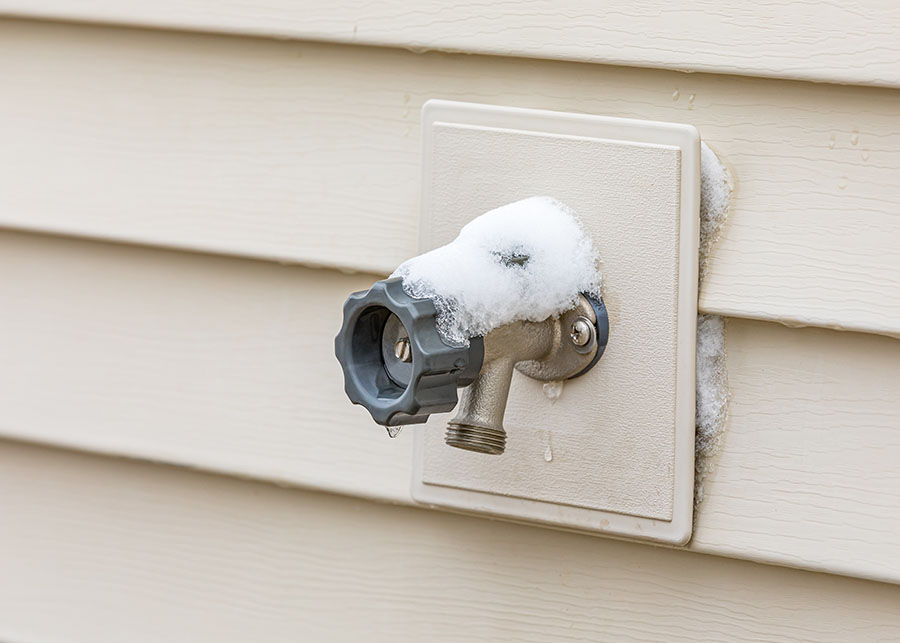While Florida’s tropical climate rarely calls for intense winter preparations, the occasional cold front can bring unexpected challenges to homeowners. Protecting your plumbing from the risk of frozen pipes is essential—even in warm regions like Jacksonville. A few simple steps can help you avoid the hassles and costs associated with freezing temperatures. Here’s what our plumbers in Jacksonville, FL, recommend for effectively winterizing your plumbing.
Why Winterizing Matters in Warm Climates
It may seem like an unnecessary precaution in Florida, but taking steps to winterize your pipes is valuable. While extreme cold is rare, Florida homes are often built with warmer weather in mind, meaning pipes may be less insulated than those in colder regions. This can make pipes more vulnerable to freezing on those rare chilly nights.
A few preventive actions can help you avoid the mess, inconvenience, and potential damage from burst pipes.
Insulate Exposed Pipes
For Florida homes, focus on residential plumbing that’s exposed to outdoor conditions or in unheated areas like the garage or attic. Use foam pipe insulation or wrap exposed pipes with towels or blankets for an extra layer of warmth. These materials are inexpensive and easy to find at local hardware stores. Since they act as a buffer, they keep your pipes protected, especially on those rare but brisk winter nights.
Keep Indoor Temperatures Consistent
If the temperature drops, maintaining a steady indoor temperature can significantly reduce the risk of freezing pipes. Even setting your thermostat to a moderate 65 degrees Fahrenheit overnight is enough to prevent indoor plumbing from getting too cold.
Avoid turning off the heat completely if you leave the house overnight. This slight adjustment can be a lifesaver for protecting pipes in areas of your home that don’t get direct heat.
Let Faucets Drip During Cold Spells
On especially cold nights, our Jacksonville plumbers recommend allowing your faucets to drip slightly. This keeps water moving through your pipes, making them less likely to freeze. Focus on faucets that are farthest from your main water line or in areas exposed to cold, like an outdoor bathroom. This simple trick is particularly useful for pipes that are more exposed to the elements, helping to prevent any freezing and pressure buildup.
Disconnect Outdoor Hoses and Cover Outdoor Faucets
Outdoor faucets are especially vulnerable to the cold, and frozen outdoor faucets can lead to costly repairs. Disconnect any hoses attached to these faucets and drain them before storage. Use an outdoor faucet cover or simply wrap the faucet with an insulating material.
This easy step prevents residual water in the faucet from freezing and potentially expanding into connected pipes.
Seal Cracks and Drafts Near Pipes
Cold air can sneak in through small cracks and gaps near pipes, especially around exterior walls. Inspect areas where pipes pass through walls, especially in basements or crawl spaces, and seal any visible gaps with caulk or foam sealant. Blocking drafts helps keep the pipes in warmer surroundings, reducing their risk of freezing during those occasional cold fronts.
What to Do if Pipes Freeze
In the rare event a pipe freezes, it’s best to contact one of our professional plumbing contractors to prevent further damage. If you notice a frozen pipe, turn off the water at the main valve and gently warm the pipe with a hair dryer or space heater.
Avoid using open flames or applying direct heat, as this can damage the pipe. However, expert help from our plumbers in Jacksonville, FL, can ensure a safe and quick resolution if you experience any pipe issues.
Let Smiley Do It! Request a Plumbing Quote Today.
Winterizing your plumbing may seem unnecessary in a warm climate, but these simple measures can go a long way. Our plumbers in Jacksonville, FL, can help you with winterizing tips and solutions, ensuring your home’s plumbing is protected, regardless of the temperature. To request a quote, call A-1 at or fill out our online contact form.


